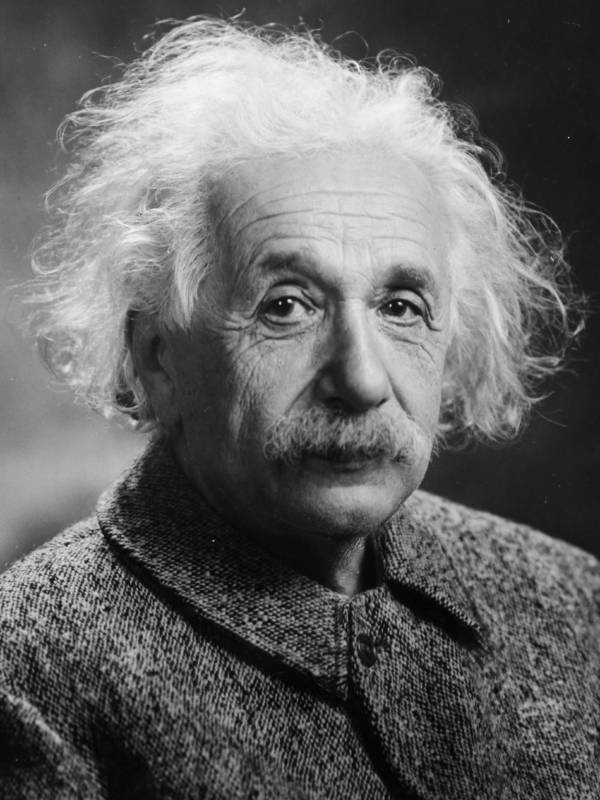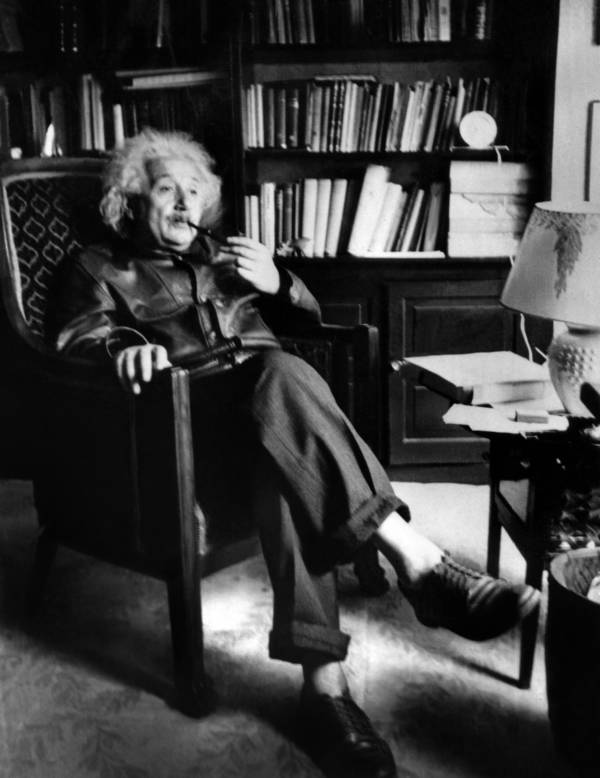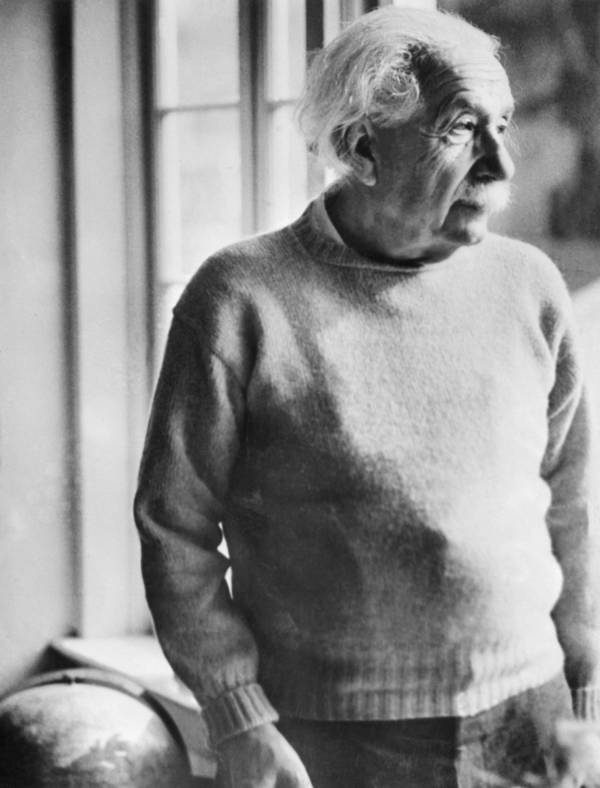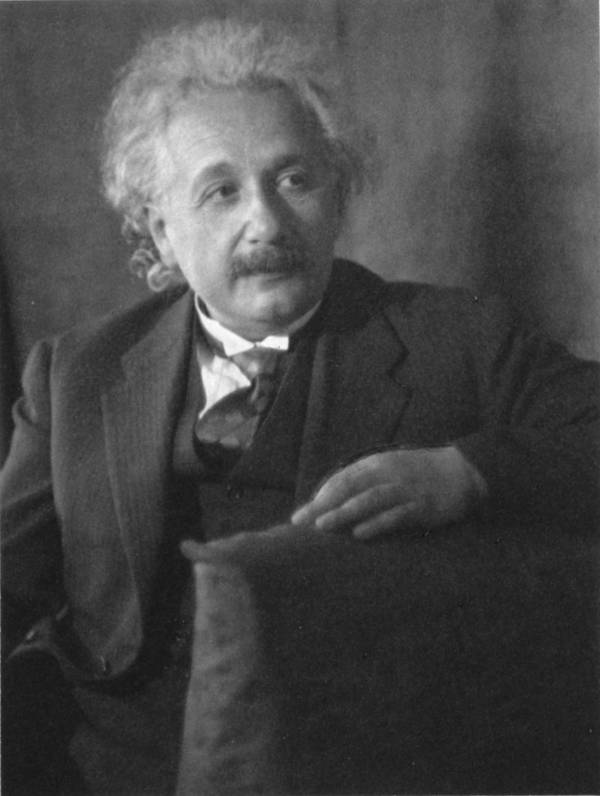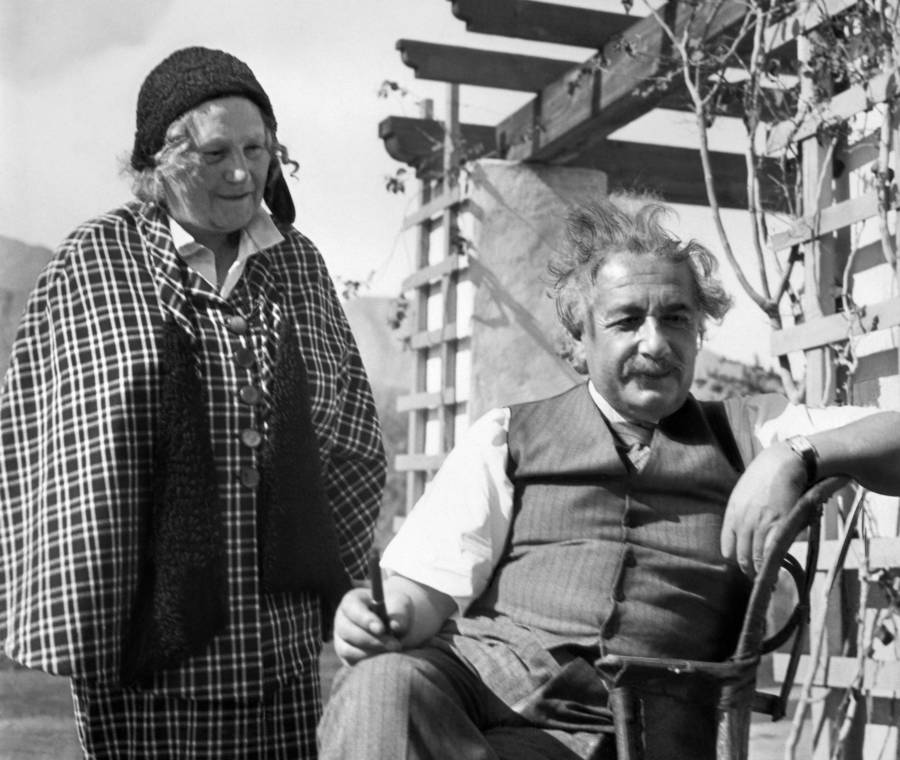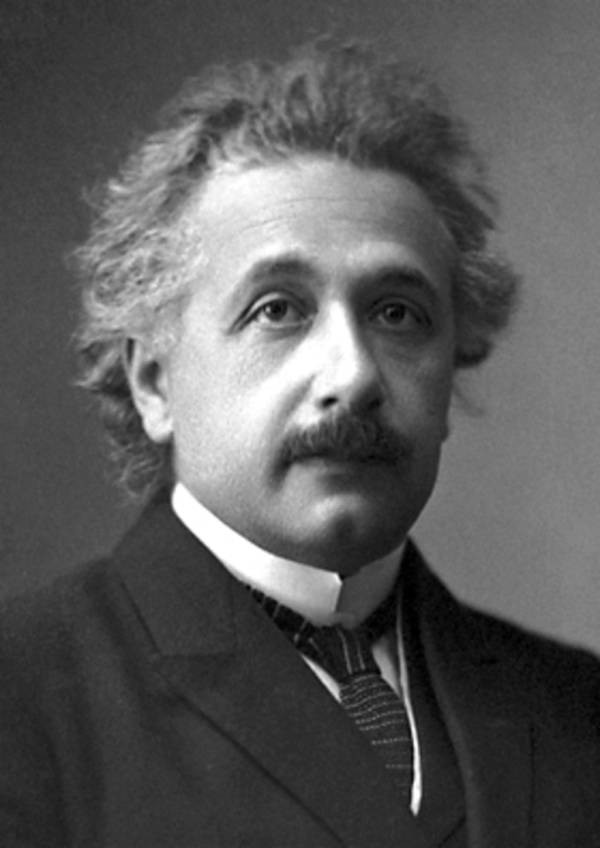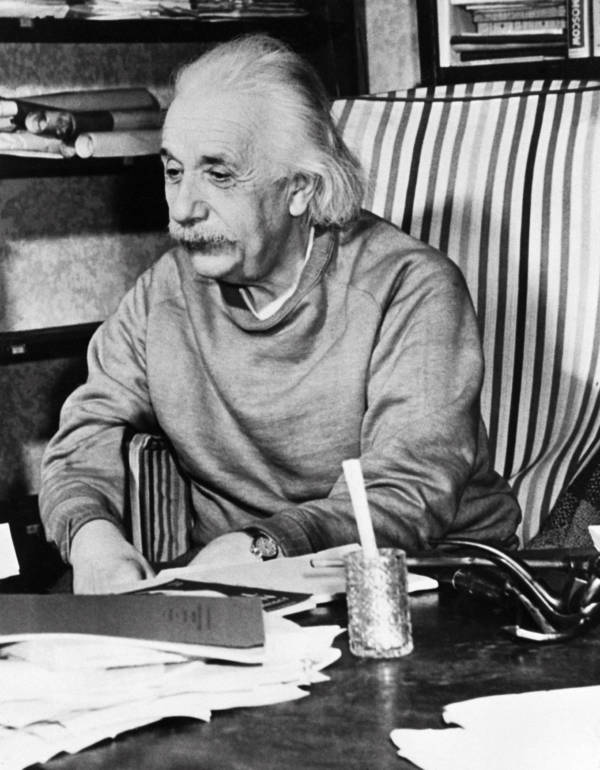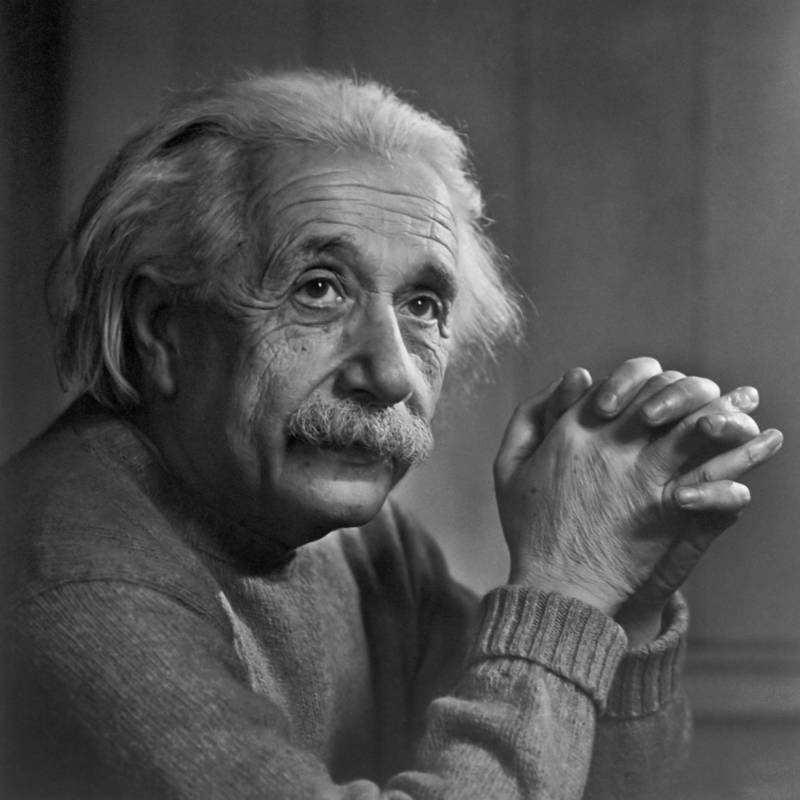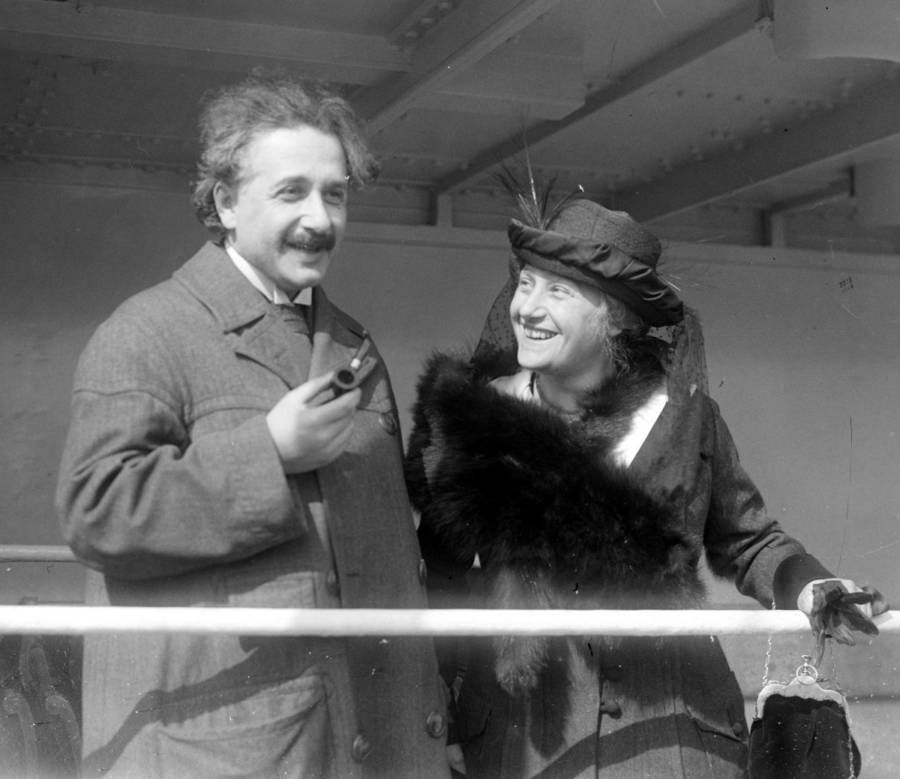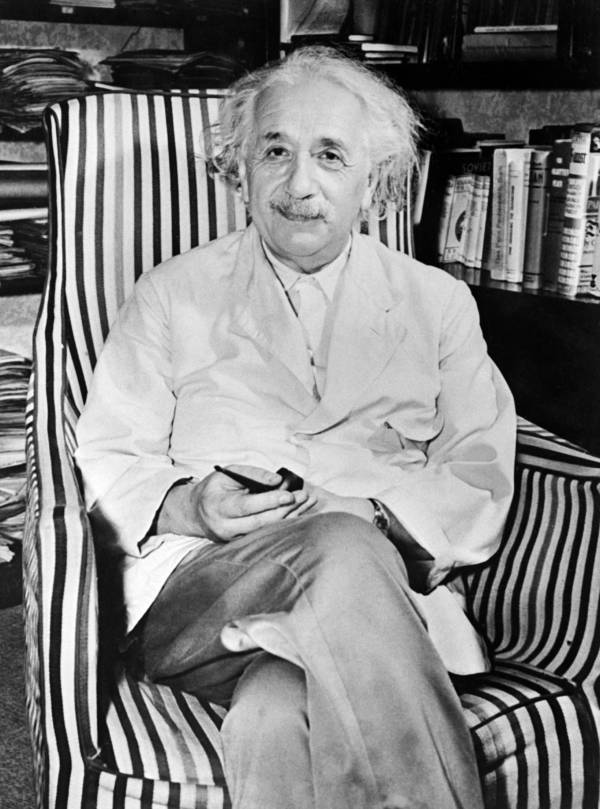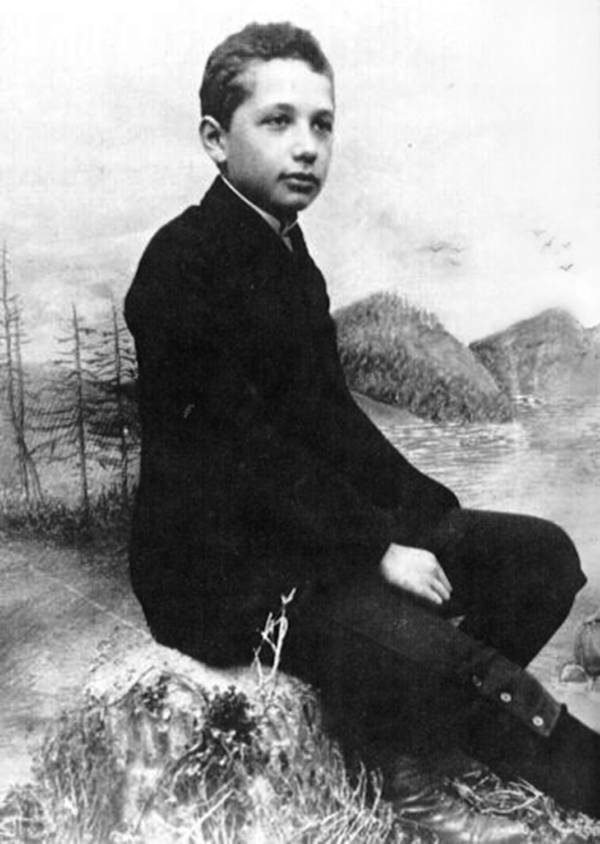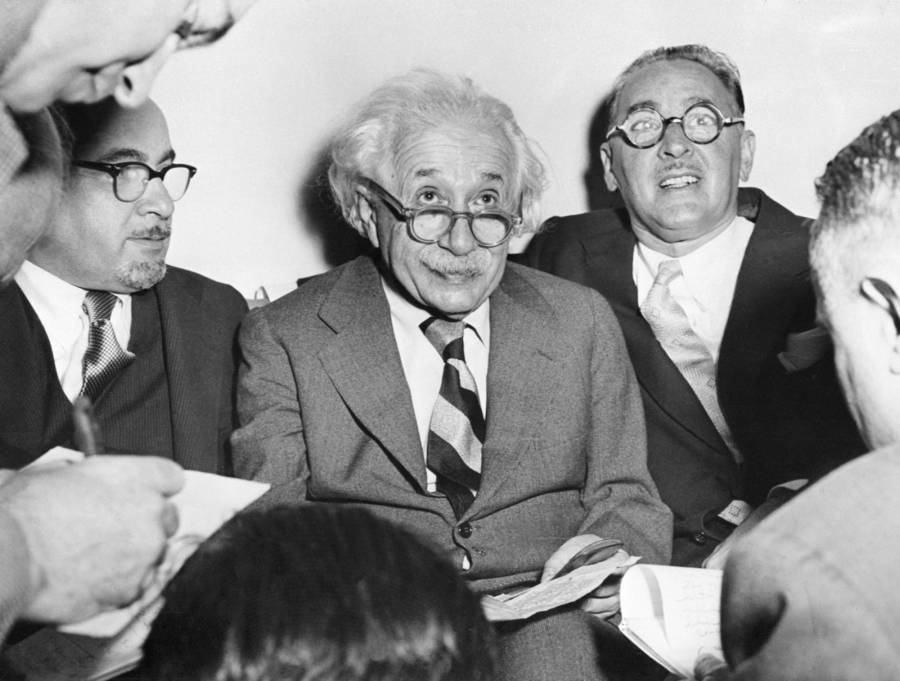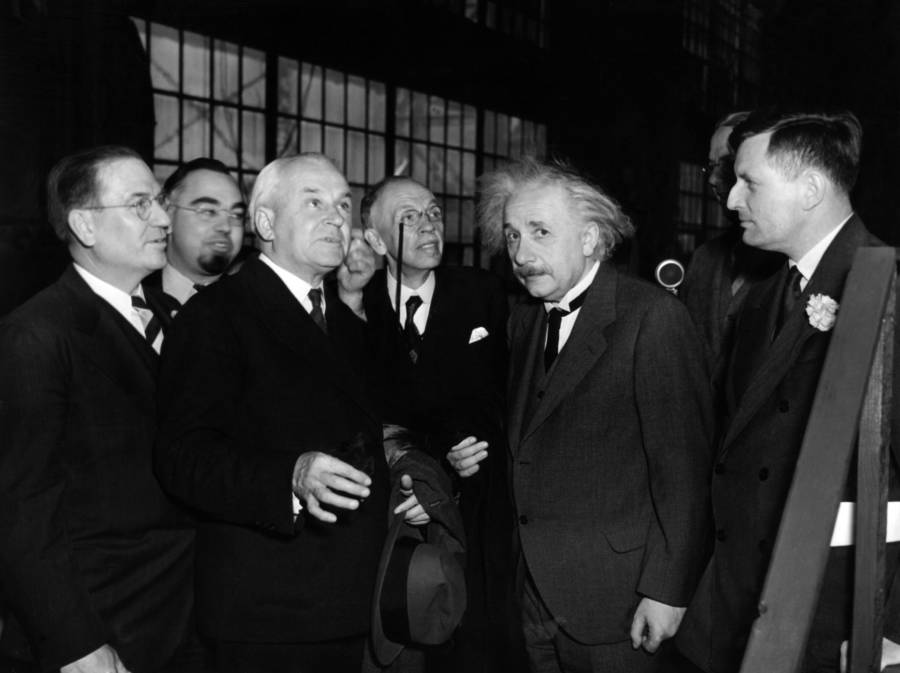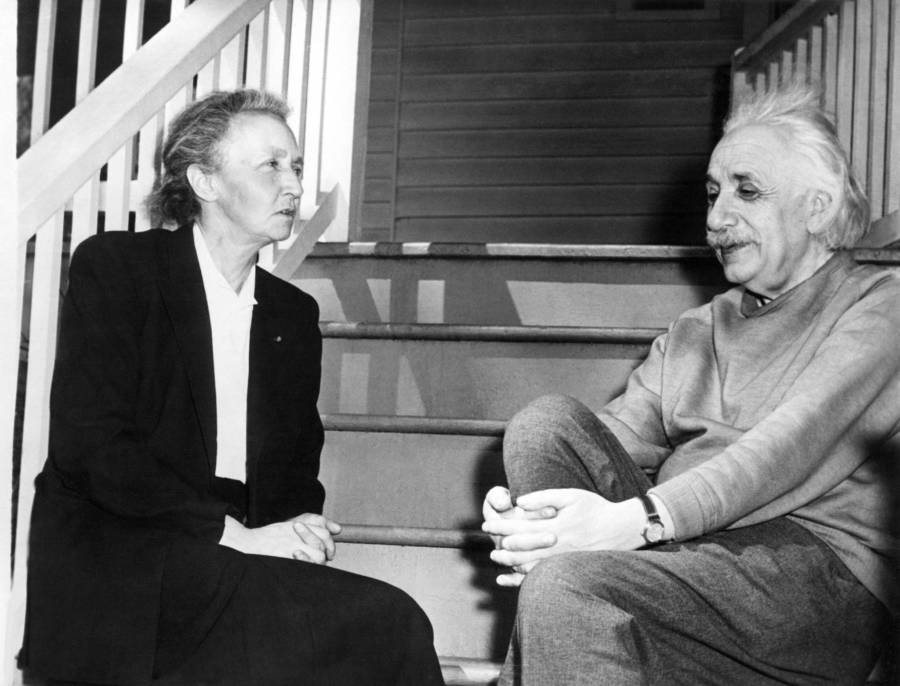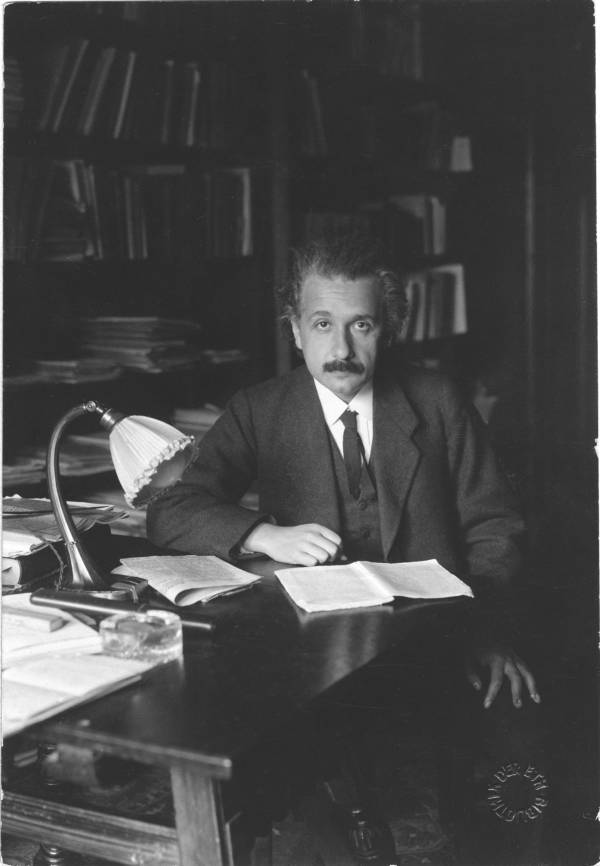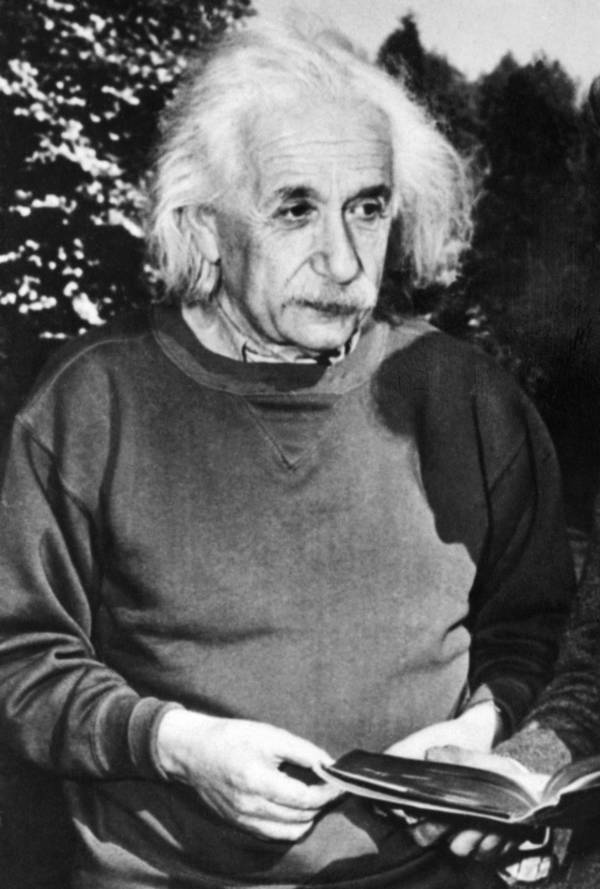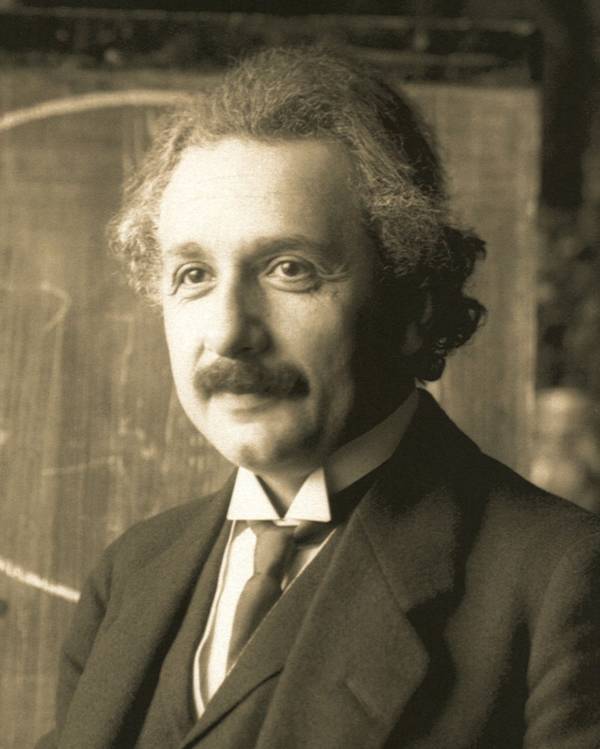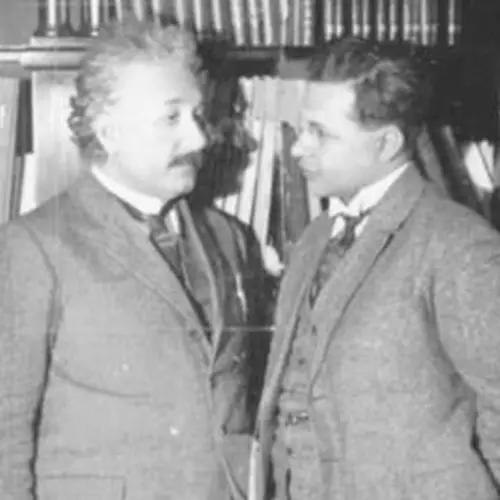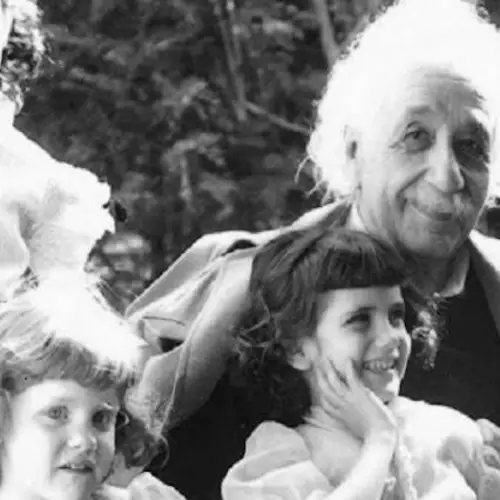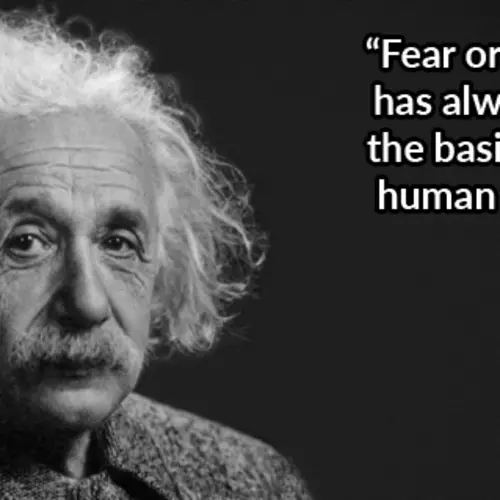1 of 26
He isn't completely responsible for E = mc2 -- at least not in the way you think he is.
The most important part of the equation -- the suggestion of an equivalency between mass and energy -- had been proposed by a number of scientists including Friedrich Hasenöhrl, Henri Poincaré, and Oliver Heaviside years, even decades, before Einstein published his theory in 1905. Even the equation itself, in a slightly different version, had been published more than once before Einstein, who was indeed able to simplify the equation and put it into the form that made it famous. Wikimedia Commons
2 of 26
He never actually failed math.
This is a popular “fact” often promoted on the internet, perhaps in an attempt to humanize Einstein's genius. However, it is simply not true. Overall, Einstein was an average student, but math was one area where he excelled, unsurprisingly.Wikimedia Commons
3 of 26
He did, however, fail his university entrance exam.
In 1895, a 16-year-old Einstein took the entrance exam for the Swiss Federal Polytechnic, a science, technology, engineering and mathematics school. While he had exceptional scores in physics and math, his other scores weren't good enough and he failed the exam as a whole.-/AFP/Getty Images
4 of 26
He aided in the development of nuclear weapons -- although not quite in the way that some think.
His involvement in this matter is often misinterpreted, with some claiming that he helped create the atomic bomb. In reality, what he did was write a letter to President Roosevelt encouraging him to begin work on such a weapon, which led to the creation of the Manhattan Project that was ultimately responsible for the bomb. Although a dedicated pacifist and, later, an anti-nuclear weapons spokesman, Einstein was convinced that America needed the atomic bomb before the Nazis.-/AFP/Getty Images
5 of 26
He was a great musician.
If the whole “genius” thing didn’t work out, Einstein could have become a working violinist. His mother played piano so he had the love of music instilled in him via violin lessons at the young age of five. -/AFP/Getty Images
6 of 26
He could have been the President of Israel.
When Israel’s first president, Chaim Weizmann, died, Einstein was offered the position, but he declined.Wikimedia Commons
7 of 26
He married his cousin.
After Einstein divorced his first wife, Mileva Maric, he married his cousin, Elsa Lowenthal (pictured). He was, actually, quite a bad husband to his first wife in their later years. He had affairs he never tried to hide, he moved the entire family to Berlin without discussion, and treated her more as a servant than a wife.-/AFP/Getty Images
8 of 26
He even had his first wife agree to a written list of demeaning duties and conditions if she wanted to stay with him.
The full list given to Mileva Maric (pictured), only uncovered recently, includes items like, "you will not expect any intimacy from me, nor will you reproach me in any way" and "you will renounce all personal relations with me insofar as they are not completely necessary for social reasons."Wikimedia Commons 9 of 26
He promised his Nobel Prize money to his wife upon their divorce -- before he'd even won the prize.
In 1919, when drawing up divorce papers with his first wife, he promised her Nobel Prize money he hadn't yet won (which some see as a tacit admission that she actually helped him create some of his most famous theories). Of course, his confidence proved warranted when he won just two years later and indeed gave the money to his wife.Wikimedia Commons
10 of 26
He won the 1921 Nobel Prize for Physics -- but not for the reason you think.
His win alone isn’t particularly surprising, but what is surprising is the fact that he didn’t receive it for either the general or special theory of relativity -- both of which account for much of his renown today -- but rather for the photoelectric effect.-/AFP/Getty Images 11 of 26
He had an illegitimate daughter.
This wasn’t widely known until the 1980s, but according to correspondence between Einstein and Maric, it was determined that the two had a daughter in 1902 named Lieserl. At one point, all mention of her in letters stopped so her fate is unknown.-/AFP/Getty Images
12 of 26
One of his two sons was shipped to an asylum with schizophrenia.
At the ago of 20, Eduard Einstein was diagnosed with schizophrenia and institutionalized. He soon suffered a breakdown and told his father that he hated him. When Einstein left for America, it was the last he ever saw of his son, who lived out his remaining years alternately under the care of his mother and various asylums.Wikimedia Commons
13 of 26
He loved to sail.
Ever since university, Einstein sailed as a hobby. But by his own admission, he never made a particularly good sailor. In fact, he didn’t even know how to swim.Wikimedia Commons
14 of 26
He really didn’t like socks, and usually didn’t wear them.
In fact, in a letter to Lowenthal, he bragged about getting away “without wearing socks” while at Oxford. -/AFP/Getty Images
15 of 26
He was born with an alarmingly enormous head.
Upon Einstein's birth, his mother feared that he was deformed. Physicians were ultimately able to reassure her and after a few weeks, Einstein grew into his head. Wikimedia Commons
16 of 26
His speech development during childhood was significantly delayed.
Einstein didn't begin speaking until the age of four. Today, Einstein Syndrome, a term coined by economist Thomas Sowell, refers to exceptionally bright people who nevertheless have early problems with speech.Wikimedia Commons
17 of 26
His brain actually was physically different than the rest of ours.
Many curious researchers have examined Einstein's brain since his death, uncovering many curious, if ultimately specious, findings. However, one study did find that Einstein's parietal lobe -- the region responsible for mathematical thought, visuospatial cognition, and imagery of movement -- was 15 percent larger than the average person's.Wikimedia Commons
18 of 26
His brain's total weight, however, was lower than that of the average person.
When researchers weighed his brain shortly after his death, they found that it came to 1,230 grams, noticeably less than the 1,400-gram average.-/AFP/Getty Images
19 of 26
His brain was stolen.
After Einstein died, the pathologist who did his autopsy took his brain without permission. He eventually got the permission necessary from Einstein’s son, but he was fired from Princeton when he refused to turn the brain over. He kept it for over 40 years before finally returning it in 1998.-/AFP/Getty Images
20 of 26
His brain wasn't the only part of his body that was preserved after his death.
The same doctor that took Einstein's brain also took his eyeballs and eventually gave them to Einstein's ophthalmologist and friend, Henry Abrams, who kept them in a safe deposit box in New York City, where they remain to this day.-/AFP/Getty Images
21 of 26
He left his homeland forever because of Hitler.
In February 1933, just one month after hitler became chancellor of Germany, Einstein came to the United States and never looked back. Knowing that Germany was no longer a safe place for Jews, he never again returned to his country of birth.-/AFP/Getty Images
22 of 26
He rarely visited a lab.
Although he developed theories that obliterated the boundaries of science and is himself perhaps the most famous scientist of all time, he worked things out in his head or on paper at his desk, hardly ever visiting a laboratory. Wikimedia Commons
23 of 26
He developed his most important theories while working a rather tedious day job.
Just after the turn-of-the-century, a twenty-something Einstein needed a steady income and took a job as a patent clerk in a Swiss office. There, he evaluated patent submissions, a task he quickly mastered, giving him ample time to formulate his world-changing theories.Wikimedia Commons
24 of 26
He couldn't get a job in academia for almost a decade.
The reason the young Einstein settled for that patent clerk job is that no academic institution would hire him. Although his professors knew him to be brilliant, they also saw him as rebellious and unruly, thus refusing to recommend him for various positions.-/AFP/Getty Images
25 of 26
He was under FBI surveillance for a rather long time.
Not long after Einstein moved to the U.S., FBI boss J. Edgar Hoover had agents begin spying on him. Fearing that the left-wing, pacifist, intellectual Einstein could be some kind of threat to the establishment or even a Soviet spy, Hoover had the FBI listen in on his phone calls, go through his mail, and even root around in his trash on and off for more than two decades.Wikimedia Commons
26 of 26
Like this gallery?
Share it:
